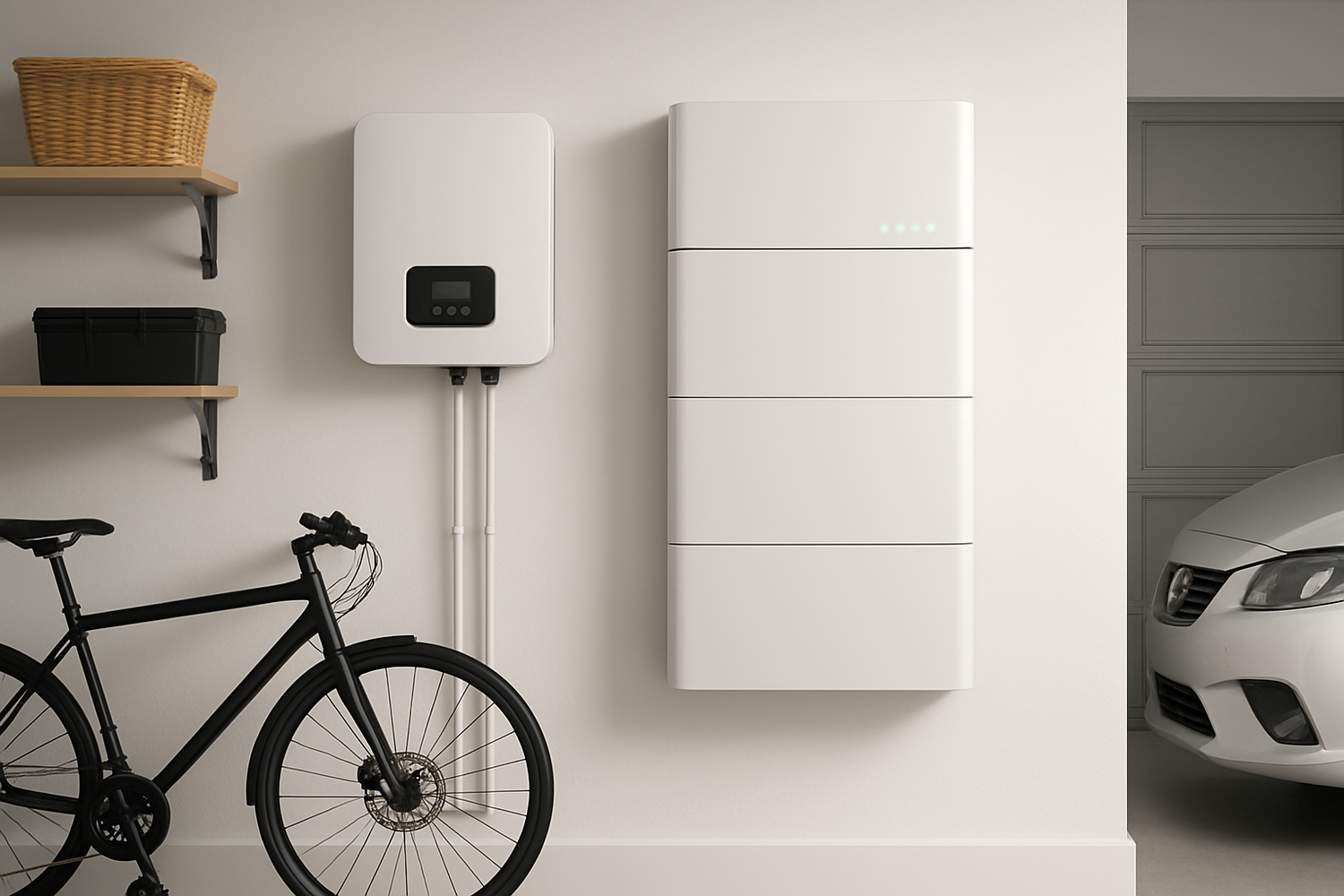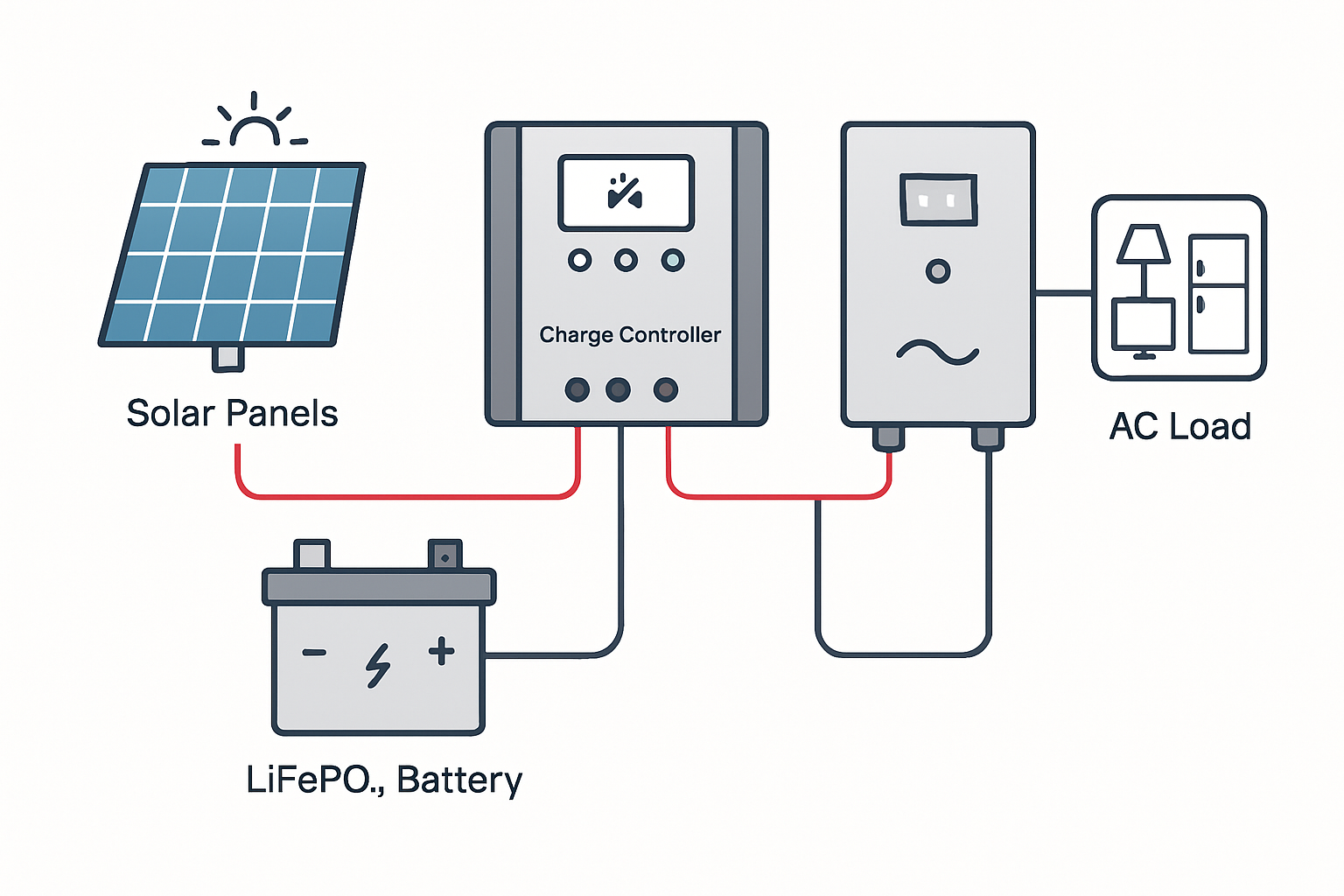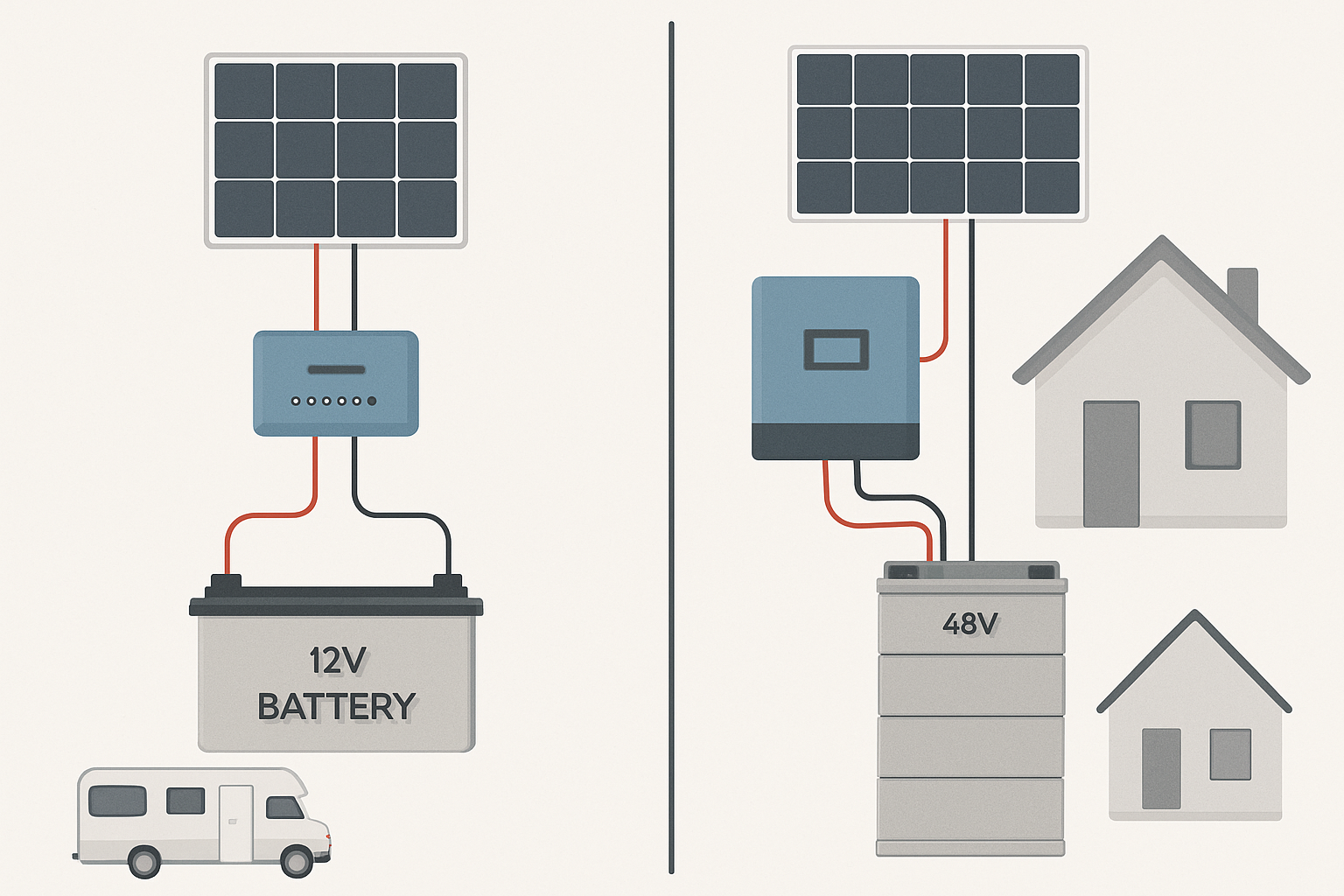Pairing solar panels with a home battery is a significant step toward energy independence. While the benefits of generating your own electricity are clear, the decision to store it involves a careful look at the numbers. A home solar battery storage system captures unused solar energy during the day, making it available when the sun isn't shining. This capability raises an important question for many homeowners: Does the financial benefit justify the initial investment?
Understanding the Costs of Home Solar Battery Storage
Evaluating the value of a solar battery begins with a clear picture of the total cost. The price tag is more than just the battery itself; it's a complete system designed for longevity and performance.
Initial Investment: What's in the Price Tag?
The upfront cost of a home solar battery system typically includes several components. The battery unit, often a high-performance Lithium Iron Phosphate (LiFePO4) model, makes up the largest portion of the expense. Additional costs include a dedicated inverter to convert electricity, wiring, and professional installation. Total costs for a fully installed system can range from $6,000 to over $18,000, depending on the battery's capacity, brand, and installation complexity. For an average-sized home, a system providing 10-13.5 kWh of storage often costs around $10,000 to $13,000 after applying federal tax credits.
Long-Term Expenses and Lifespan
Modern solar batteries, particularly LiFePO4 types, are designed for a long operational life with minimal upkeep. Their lifespan is measured in cycles, with many models rated for 4,000 to 6,000 cycles or more, often backed by a 10-year warranty. This durability means you can expect reliable performance for over a decade without significant maintenance expenses, making the long-term cost of ownership quite low.
The Financial Returns of Solar Panel Battery Integration
A solar battery's worth is measured by the savings it generates and the financial opportunities it unlocks. By giving you control over your solar power, it can substantially reduce your energy expenses.
Maximizing Self-Consumption
Without a battery, any excess solar power your panels produce is sent back to the grid. A battery allows you to store this energy instead. According to a report from the Next Generation Wind and Solar Power, installing battery storage systems with solar PV can effectively increase self-consumption and reduce the amount of power sent to the grid. You can then use your own stored solar energy during the evening, reducing your reliance on your utility company and lowering your monthly electricity bills.
Navigating Time-of-Use (TOU) Rates
Many utility companies use Time-of-Use (TOU) pricing, where electricity costs more during peak demand hours, typically in the late afternoon and evening. A home battery provides a powerful financial advantage in these situations. You can use your stored, low-cost solar power during these expensive peak periods, directly avoiding the highest rates and maximizing your savings. This strategy, known as energy arbitrage, is one of the quickest ways a battery system pays for itself.
Incentives and Rebates
Government incentives can dramatically reduce the net cost of a solar battery. In the United States, the Residential Clean Energy Credit provides a tax credit for 30% of the total cost of qualifying battery storage systems with a capacity of 3 kWh or more. This credit applies to the battery, components, and installation labor. Many states and local utilities also offer their own rebates, further improving the financial picture. These incentives can shorten the payback period and make the investment more accessible.
Disclaimer: This article is for informational purposes only and does not constitute financial or legal advice. Please consult with a qualified professional and check for the latest local incentives.
Beyond the Bottom Line: The Non-Financial Benefits
The value of a home battery storage system isn't purely financial. It also provides practical benefits that enhance your home's resilience and your peace of mind.
Energy Independence and Grid Resilience
Power outages are becoming more common, but a solar battery can keep your essential appliances running. During a grid failure, the battery can power your refrigerator, lights, and medical devices, providing a seamless source of backup power. This level of energy security offers independence from an aging and sometimes unreliable grid infrastructure.
Supporting a Stable and Clean Energy Grid
When you store and use your own solar power, you reduce the strain on the electrical grid during peak demand times. As the Renewable Power Generation Costs in 2024 report highlights, batteries add value to renewable energy systems by shifting electricity to periods of high demand, which enhances grid reliability. This collective action helps create a more stable and efficient energy system for the entire community and maximizes the use of clean energy.
Calculating Your Solar Battery System ROI
The return on investment (ROI) for a solar battery is not one-size-fits-all. It depends on your specific circumstances, but understanding the key variables can help you make an informed decision.
Key Factors Influencing Your Payback Period
The time it takes to recoup your investment, known as the payback period, typically ranges from 8 to 15 years. Several factors influence this timeline, including your local electricity rates, your daily energy consumption patterns, the size of your solar and battery system, and the incentives you claim. The higher your utility rates, the faster your payback period will be.
| Factor | Impact on ROI | Description |
|---|---|---|
| Electricity Rates | High | Higher rates mean greater savings per kWh stored and used, leading to a faster payback. |
| Time-of-Use (TOU) Plan | High | Large differences between peak and off-peak rates create significant opportunities for savings. |
| Daily Energy Usage | Medium | Households that use more energy in the evening will see a greater benefit from stored solar power. |
| Federal & Local Incentives | High | Tax credits and rebates directly reduce the initial investment, shortening the payback period. |
A Practical Assessment
To determine if a battery is right for you, start by analyzing your electricity bills and usage patterns. If you live in an area with high energy costs, frequent power outages, or utility plans with expensive peak hours, a battery is more likely to be a worthwhile investment. For a deeper dive into performance metrics that affect ROI, understanding concepts like Depth of Discharge and efficiency is crucial. You can find a detailed explanation in this Ultimate Reference on Solar Storage Performance.
A Forward-Looking Investment
Deciding on a home solar battery system is a balance of financial analysis and personal priorities. While the upfront cost is significant, falling prices, robust incentives, and rising utility rates are making the economics increasingly favorable. For many, the combination of lower electricity bills, backup power security, and energy independence makes a compelling case. The 'worth' of a solar battery ultimately depends on your goals, but it stands as a powerful tool for controlling your energy future.
Frequently Asked Questions
How long do solar batteries last?
Modern LiFePO4 (Lithium Iron Phosphate) solar batteries are built for durability. They typically have a lifespan of 4,000 to 6,000 charge cycles and are often covered by a 10-year warranty, ensuring reliable performance for more than a decade.
Can I add a battery to my existing solar panel system?
Yes, you can add a battery to an existing solar installation. This process is often called retrofitting. It can be done through AC coupling, which is generally simpler for existing systems, or DC coupling, which is slightly more efficient but can be more complex to install later.
What size battery do I need for my home?
The right battery size depends on your energy goals. Key factors include your average daily electricity consumption, the size of your solar panel system, and whether you want to back up your entire home or just essential appliances during an outage. A professional installer can perform an energy audit to recommend the optimal size.
Do solar batteries require maintenance?
One of the major advantages of modern lithium-ion batteries, including LiFePO4 models, is that they are virtually maintenance-free. Unlike older lead-acid batteries, they do not require regular fluid checks or cleaning, making them a simple and convenient solution for home energy storage.





Leave a comment
All comments are moderated before being published.
This site is protected by hCaptcha and the hCaptcha Privacy Policy and Terms of Service apply.